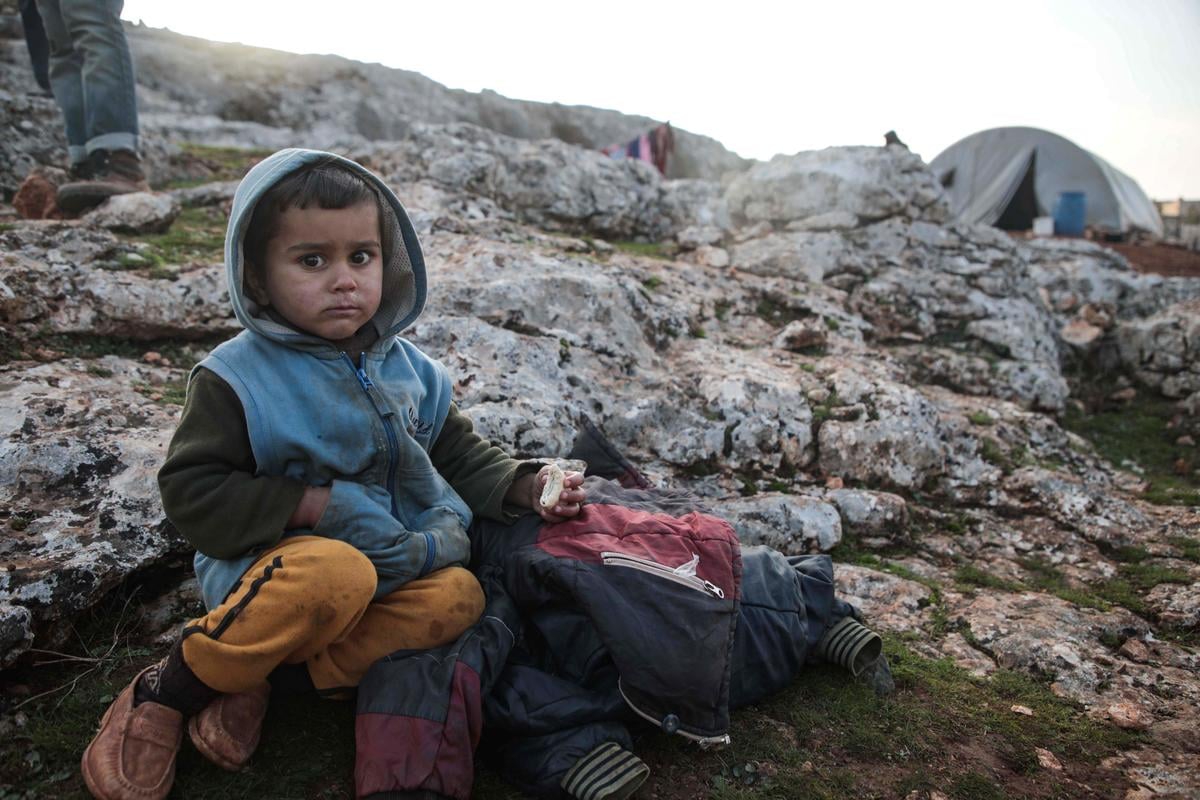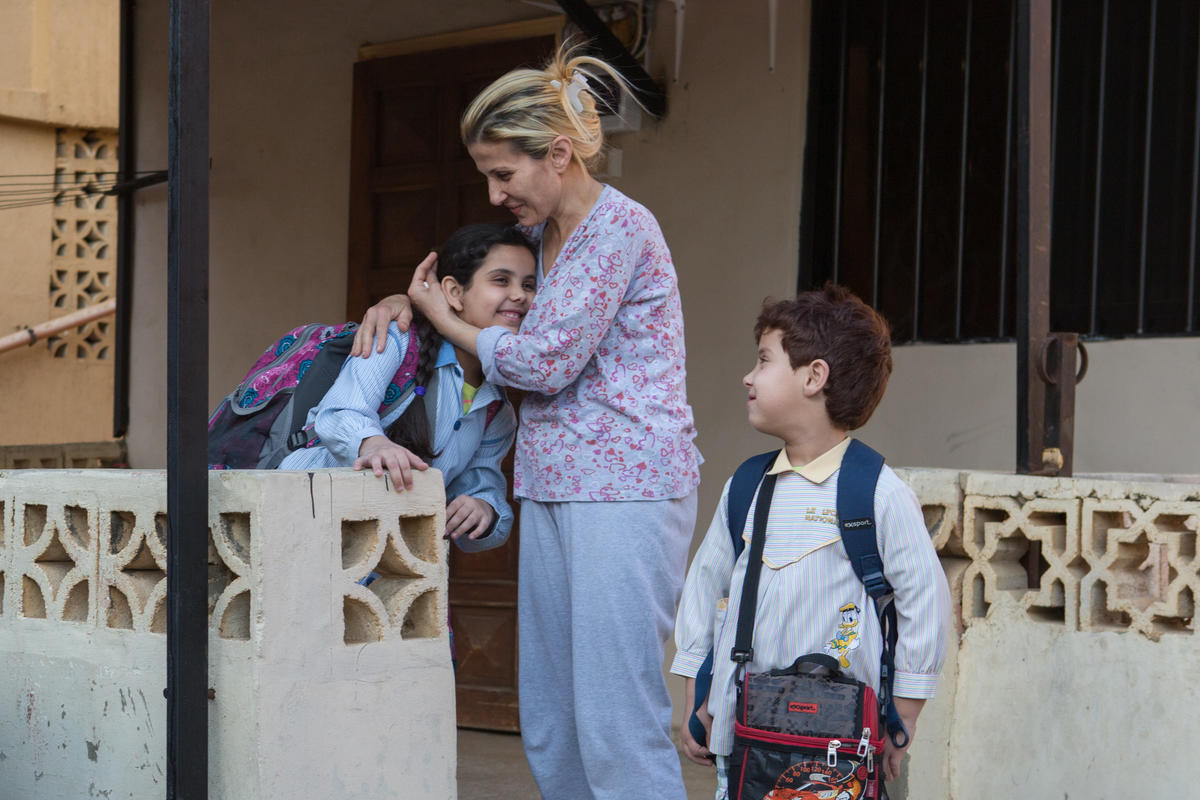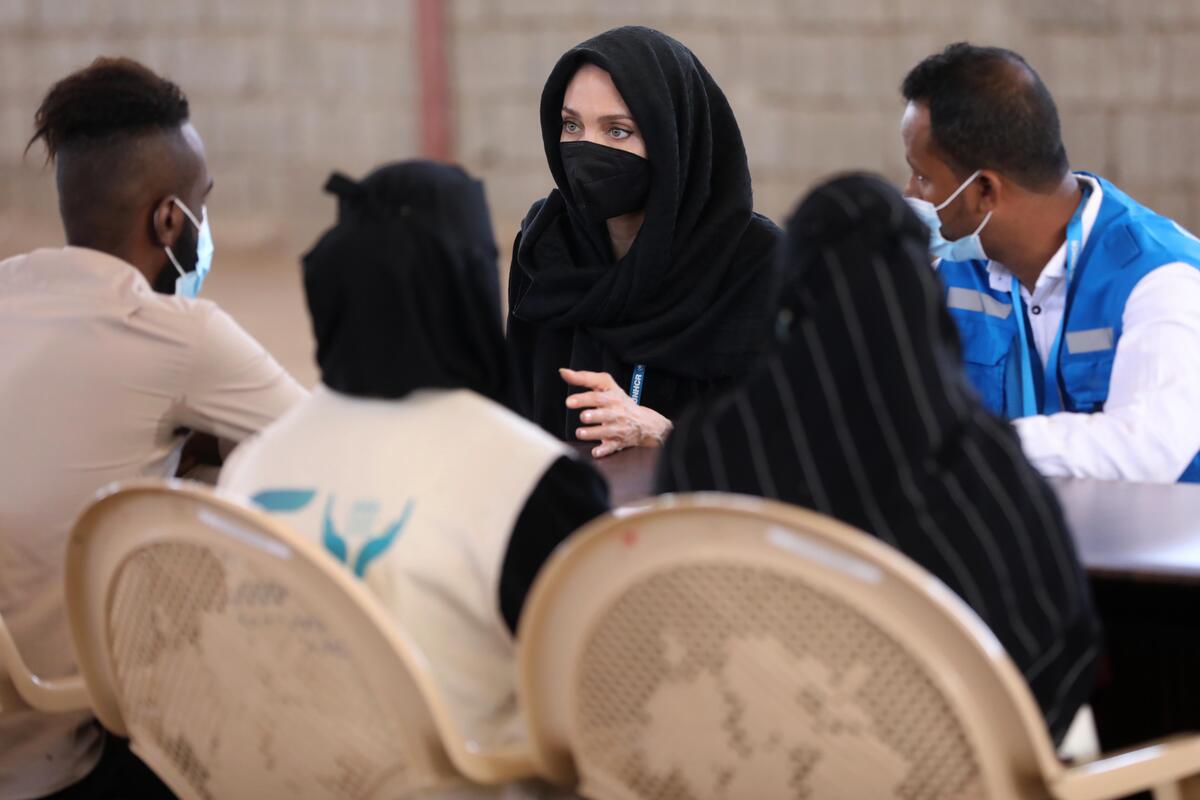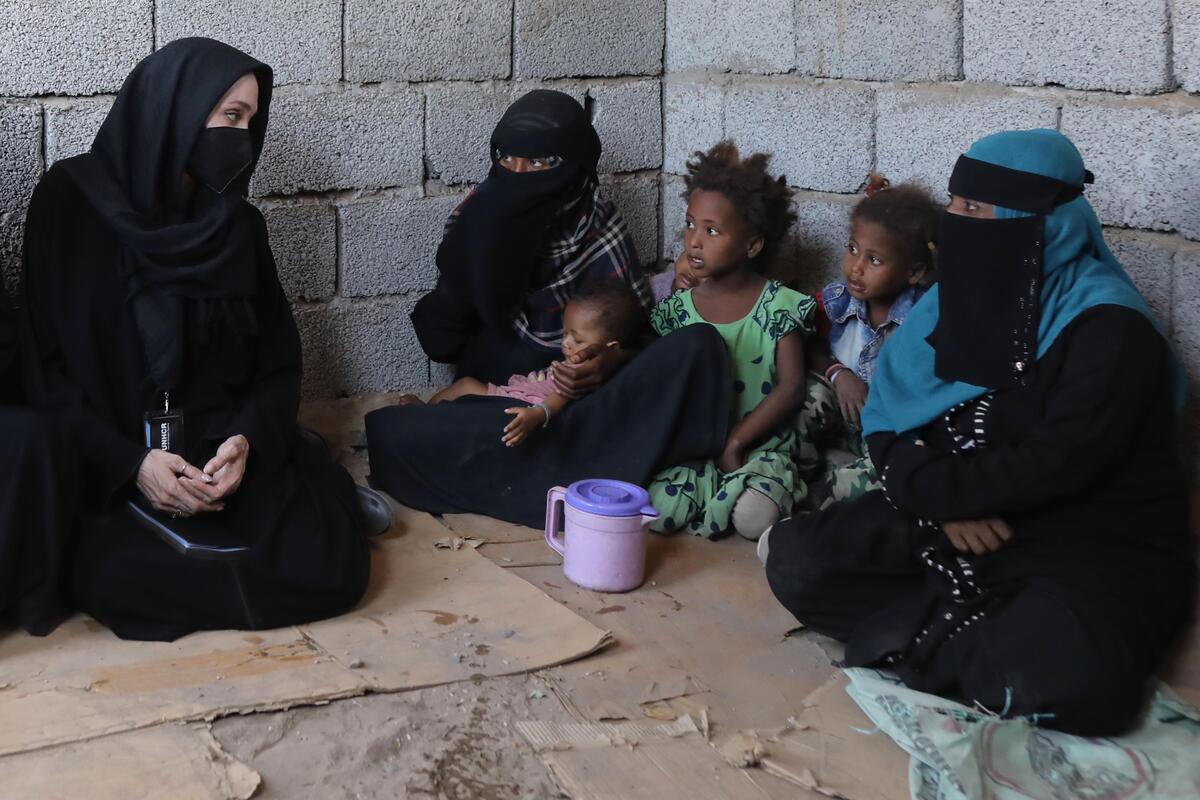UNHCR Goodwill Ambassador Jolie urges aid for Afghans in Afghanistan and Pakistan
UNHCR Goodwill Ambassador Jolie urges aid for Afghans in Afghanistan and Pakistan

ISLAMABAD, May 9 (UNHCR) - UNHCR Goodwill Ambassador Angelina Jolie thanked Pakistan for hosting millions of Afghans over the past quarter century and appealed for international assistance to help both Afghanistan and Pakistan attack poverty through economic development.
Jolie, after three days of visiting Afghans in conditions from refugee camps to brick kilns where entire families labour, told a news conference Saturday that she had been brought to tears by what she had seen. But she was encouraged that in talks with UNHCR staff and the top leaders of Pakistan, she found agreement on what had to be done.
"Everybody feels that forced repatriation is not the aim and not something that should be done," the American actress said. "Another thing is that the burden on Pakistan and the Pakistani people, which has lasted 25 years, is very large and they have not been given the support that they should have been given."
While Jolie helped UNHCR's voluntary repatriation programme, personally seeing off a convoy that pushed the number of Afghans returning this year above the 50,000 mark, she said there was a continuing need both to help those who still felt unable to go home and for more urgent development in Afghanistan.
"It's up to the international community to help to fund and to help shoulder the burden of the problem in this part of the world - to help the people, help the families, to continue the programmes and encourage that there be more and faster development," said Jolie, who had last been in Pakistan when Afghans were fleeing war in their country.
Soon after her 2001 visit, the Taliban rulers of Afghanistan were ousted and the flow reversed, with more than 2.3 million Afghans returning from Pakistan since 2002.
Jolie started her second visit to Pakistan last Wednesday by watching Afghans departing with UNHCR assistance from Islamabad. The following day, in the town of Attock near the Indus River, she spoke with many of the 500 Afghans who were returning that day. After talking to children who made their living collecting rubbish - a common occupation for Afghans in Pakistan - she scaled the side of a truck to speak with the women and children on the top.

But she also saw the complexity of the problem, wandering later on Thursday through the mud alleys of Katcha Gahri camp on the outskirts of Peshawar. Sitting with a group of children against the wall of a mud house, she heard many say they did not expect to return soon to a country that still lacks basic services.
The UN refugee agency and the government of Pakistan have started discussions on how to manage the Afghans who are likely to remain in the country after the current Tripartite Agreement between UNHCR and the governments of Pakistan and Afghanistan ends in March next year. The agreement governs voluntary repatriation.
A census earlier this year - the first ever conducted of Afghans in Pakistan - counted just over three million Afghans who have arrived since the start of the chaos in Afghanistan in 1979. Some could be refugees but many fall in other categories such as migrant or even seasonal labour.
Jolie saw first hand the need for a shift toward development to address poverty. During an emotional visit with Afghan families labouring in the brick kilns on the outskirts of Islamabad, she watched children as young as six or seven years old pounding the mud into moulds. They earn about one U.S. cent for three bricks.
"It was really one of the worst things that I have ever seen - it is very, very difficult as a mother to see children having to work," she said, admitting to reporters she had cried at the sight. "But I do understand that it's very hard for these parents who need their children to work because they still don't have the ability to eat unless the entire family is working."
UNHCR is discussing a new international emphasis on rehabilitating degraded areas of Pakistan from where Afghans have gone home and also assisting both Afghans and Pakistanis in areas where they productively co-exist. This would be simultaneous with efforts to increase Afghanistan's ability to absorb the millions of its citizens still outside its borders in Pakistan and Iran.
Jolie said the need for increased development aid to Afghanistan - a goal of UNHCR - had surfaced repeatedly in official talks during an intense three-day schedule that included meetings with Pakistan's President Pervez Musharraf and Prime Minister Shaukat Aziz.
Jolie said repatriation, the preferred goal of both UNHCR and Pakistan, would be a slow process. Despite that, UNHCR's Goodwill Ambassador said she had found a deep desire among Afghans to go home even with the economic hardships they could face.
"I met a woman who was about to get on the truck with a small baby and didn't have a husband. She was crying but she wanted to go home to Afghanistan," Jolie said. "She said: 'I have no water, I have no school, I have no house, I have nothing. I am scared but I am going and because I have God, I hope I will be okay."
Jolie said the woman was probably arriving at her destination in Afghanistan on Saturday as she was ending her visit to Pakistan: "I too hope she will be okay because I don't know how she is going to survive - how she will earn a living, find food and find health care."
By Jack Redden
UNHCR Pakistan








